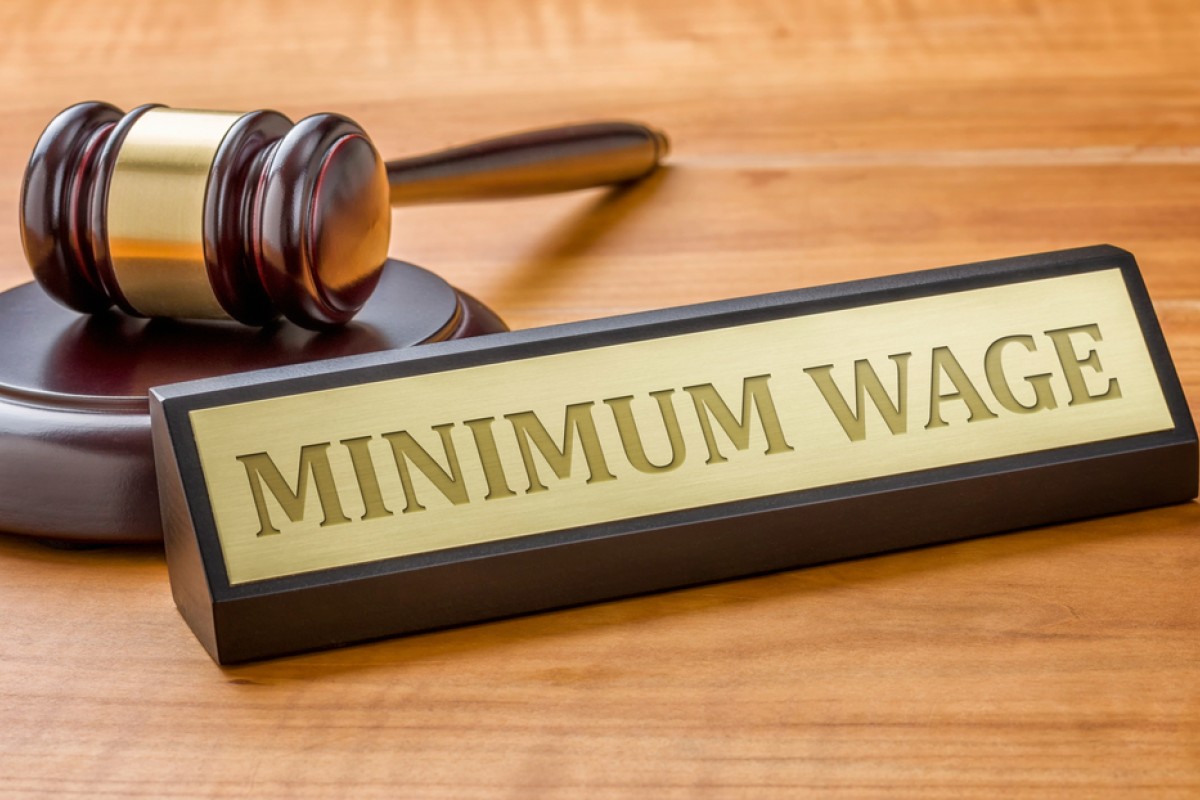
Face off: should minimum wage be set at a higher rate?
Each week, two of our readers will debate a hot topic in a parliamentary-style debate that doesn't necessarily reflect their personal viewpoint. This week's topic is ...


Joy Pamnani, 18, University of Hong Kong
Our city has seen much debate on the issue of Hong Kong’s minimum wage. In my opinion, the minimum wage needs to be increased well above the HK$34.50 per hour that will take effect in May 2017, if we are to properly tackle poverty and social inequality.
According to a report by Oxfam, a total of 1.15 million Hongkongers currently live in poverty. Also, the poverty rate of general households has increased from 18.5 per cent in 2011 to 18.7 per cent in 2015, despite the introduction of a minimum wage in 2011.
The report said the purchasing power of the current minimum wage of HK$32.50 was equivalent to HK$26 in 2010.
What’s more, low-income families have failed to reap the benefits of economic development, especially because the prices of goods are continuing to rise.
This is why we need to stand up and push for a bigger increase in the minimum wage to ensure the underprivileged have a chance of raising their living standards in the long run.
But the issue isn’t just about poverty. There’s income inequality to consider, too.
According to the same Oxfam report, the top 10 per cent earn 29 times more than that of the poorest 10 per cent in Hong Kong. An article by HK Magazine also stated Hong Kong’s rating on the Gini Coefficient – an index that measures incomes across nations, and is usually used to highlight inequality – rose to 0.537 in 2011, above the warning level of 0.4, leaving the city in 11th place on the world income inequality rankings.
An increase in the minimum wage will translate into higher salaries for Hongkongers, which will help tackle the widening gap between the rich and the poor in our city.
Finally, a rise in the minimum wage isn’t favourable only to the poor. It is also a good business decision, as employees are loyal to companies that care about their staff. According to an article by SCMP, Walmart imposed its own minimum wage of US$10 an hour. Although this added US$1 billion to its annual wage bill, the company said it was a small price to pay for more loyal, and more committed staff.
I’m certain that an increase in the minimum wage is worth the sacrifice because it will help reduce poverty, and bring more social harmony to our city.
Veronica Lin, 17, Hong Kong International School
The minimum wage shouldn’t be set at a higher rate than the HK$34.50 per hour that is being introduced in May 2017 – in fact, it shouldn’t be introduced in the first place. Raising the minimum wage will not only fail to accomplish the goals that it hopes to achieve, but also lead to unwanted consequences, such as increased poverty and inflation, which are two things the Legislative Council is trying to prevent from happening.
On the surface, it appears that this new policy will help to compensate for the rise in workers’ living costs due to inflation. But in fact, a higher minimum wage will only cause more problems. Not only will it not be able to keep up with the city’s inflation rate, it will increase production costs, which will lead to soaring prices, further dragging down the poor.
On top of this, employers – especially those who hire a lot of people to work in factories – will not be able to afford the high wages demanded by the workers. This means there will be massive layoffs or shorter working hours. For the affected workers, unemployment is without a doubt worse than a lower salary.
On another level, the increase in minimum wage would be a huge blow to Hong Kong’s economy, and badly affect one of its key industries – tourism. For instance, the increase in the salaries of security guards and cleaners at hotels and shopping malls would be directly transferred to the tourists. The higher prices are likely to drive tourists away, and this would be very bad for the economy, particularly because the number of mainland visitors (who make up 78 per cent of all arrivals) has already declined.
